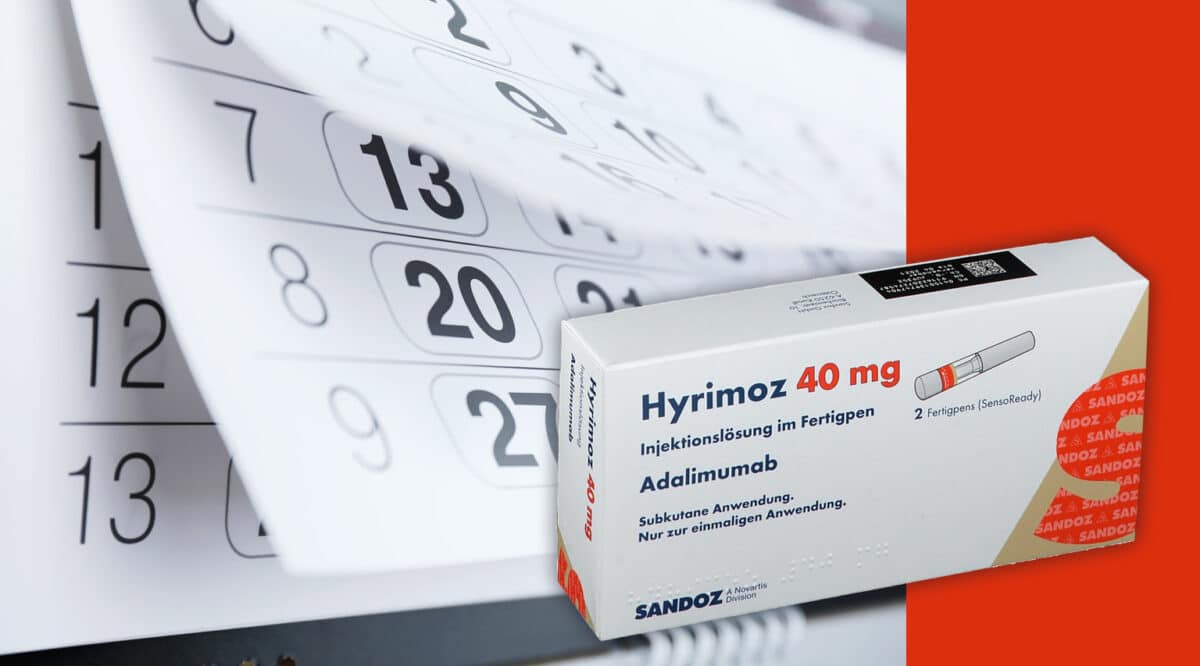In the old days (before the internet) the importance of a news item was often expressed in how many column inches the item was generating in newspapers. The topic we are focusing on today has been generating a huge amount of ‘ink’ in the past week and… it is about a therapy that was approved five years ago.
The FDA approved the biosimilar Hyrimoz (adalimumab-adaz) in 2018. As most of you mat recall, this biosimilar to Humira was blocked from market entry due to patent challenges. Those holds are finally coming off and the Hyrimoz launch is finally on track for this July.
The big news about Hyrimoz is that it has been reformulated with a high-concentration formulation (HCF) and is now also citrate free. The elimination of citrate is unique among the Humira biosimilars as a selling point since the citrate preservative causes some injection pain (akin to getting lemon juice in a paper cut). This may sound like a ‘nothing burger’ differentiation….. but any differentiation is better than none….. especially if you are stuck for talking points with a prescriber.
Pricing for Hyrimoz was not announced. By way of reference…. the GoodRx avg. retail for Humira is $9100 or $5100 with a coupon $5100 (2 pens= 1 month’s dosing) vs, Amjevita biosimilar priced at $4200 (also 2 pens). How payers will react to the pricing levels, given rebates, remains to be seen.
——————————————————————————————-
FDA Approves Adalimumab-adaz High-Concentration Formulation Biosimilar
Mar 21, 2023
Aislinn Antrim, Editor
Sandoz intends to launch the latest Humira biosimilar in the United States on July 1, 2023.
The FDA has approved a citrate-free high-concentration formulation (HCF) of Sandoz’s biosimilar adalimumab-adaz injection (Hyrimoz) for 7 indications covered by adalimumab (Humira; AbbVie), including rheumatoid arthritis, juvenile idiopathic arthritis, psoriatic arthritis, ankylosing spondylitis, Crohn disease, ulcerative colitis, and plaque psoriasis.1
Sandoz intends to launch the biosimilar in the United States on July 1, 2023, according to a press release.1
“As one of the first adalimumab high-concentration formulation biosimilars approved in the US, Hyrimoz HCF has the potential to expand access for millions of people who face the realities of living with a serious inflammatory disease and to enhance the patient experience,” said Keren Haruvi, MBA, president of Sandoz Inc., head of North America, in the press release.1
Adalimumab is an inhibitor of tumor necrosis factor, a protein that is overproduced in certain autoimmune conditions, such as rheumatoid arthritis, plaque psoriasis, Crohn disease, and ulcerative colitis. It causes inflammation and tissue destruction in joints, mucosa, or skin. In some cases, the immune system damages the body’s own tissues.1
The new approval is based on a phase 1 pharmacokinetics bridging study comparing the FDA-approved adalimumab 50 mg/mL to the citrate-free 100 mg/mL HCF. The study met all of the primary objectives, demonstrating comparable pharmacokinetics and showing similar safety and immunogenicity of the adalimumab 50 mg/mL and adalimumab HCF.1
“Biosimilars are extensively studied, FDA-approved treatments,” said Steve Taylor, MBA, president and CEO of the Arthritis Foundation, in the press release. “There are millions of patients affected by chronic inflammatory conditions that drastically impact their everyday lives. Given the high burden of disease for these conditions, biosimilars are one potential solution for health care providers and patients to consider, to ensure patients can take and stay on their medicines to help manage their disease and health outcomes.”1
The first biosimilar for Humira was launched in February by Amgen and is expected to be the only adalimumab biosimilar on the market until July.2 Although implementing biosimilars in clinical practice can still be a challenge, biosimilars can offer enormous cost savings for patients and the broader health system.
Use of biosimilars in general is sharply increasing. Annual FDA approvals for biosimilars peaked in 2019 with 10 approvals, followed by declines in 2020 and 2021 due to the COVID-19 pandemic. However, 2022 saw that trend rising again,3 and biosimilar approvals for blockbuster drugs such as Humira promise to continue the uptick into 2023.


